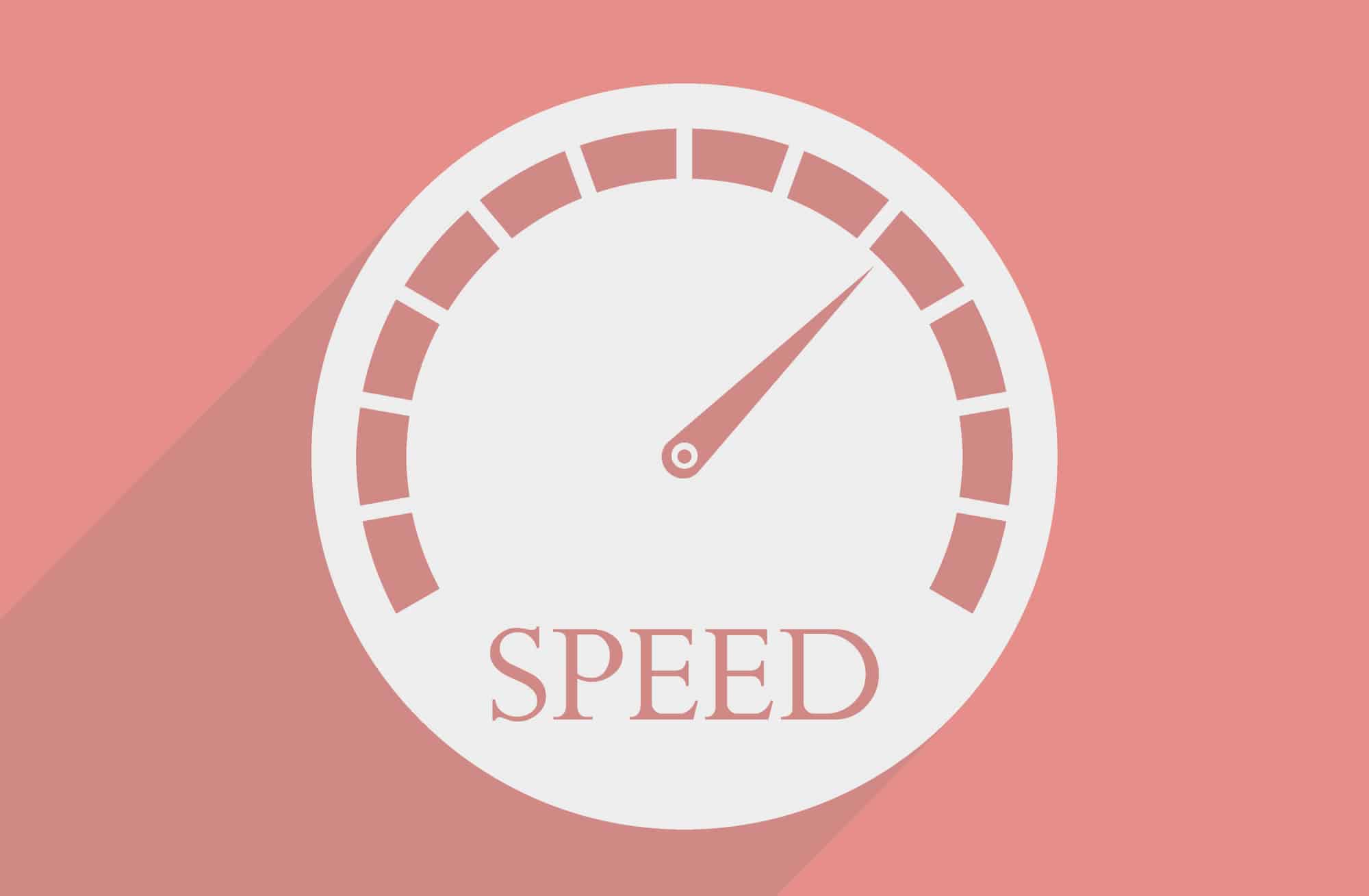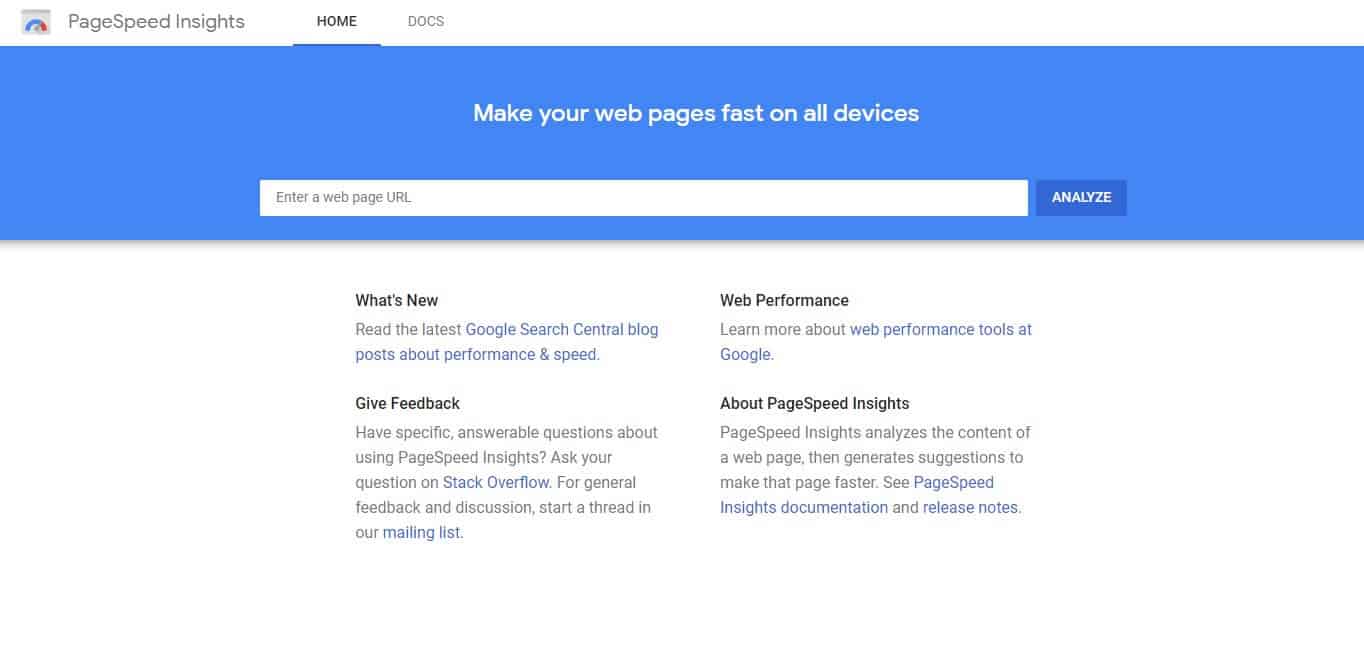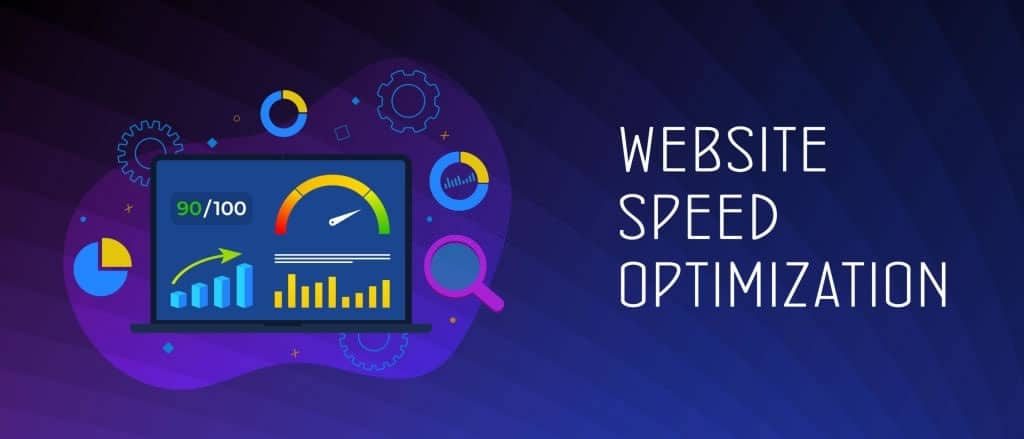WordPress Website Speed Optimization
We have optimized over 150+ WordPress websites for our Clients
Get My Free Site Speed Audit Report
GUARANTEED RESULTS
DETAILED REPORTS AND GUIDELINES
INCREASED TRAFFIC
Benefits of Optimum Website Speed
Increasing your online presence and client base is a time-consuming task where every second matters. However, no one can dispute that the end product is well worth the effort. Don’t let your digital marketing efforts go to waste because your website won’t load.
Remember that the aim of the majority of your efforts, whether they be SEO, Adwords, or Facebook marketing, is to drive both prospective and existing consumers to your website. You can’t expect these techniques to produce leads if every time someone is led to your website, it takes too long to load. Therefore having the optimal speed when it comes to loading time is paramount.
Even a waiting time of a few seconds can result in an increase in bounce rates, a fall in conversions, and a drop in search ranks. Fortunately, there are several steps you may take to avoid these issues!
If your website is facing some issues with loading quickly or if you are looking for advice on improving your website, you came to the right place. We’ve prepared a guideline to make things easier for you. In it, we cover everything from why speed is essential to what slows down your Word Press site and concrete measures you can do right away to enhance your Word Press speed.

My business website loading speed was so poor that its take 8 seconds to load the website. And it hampers on my sales. I contacted Cube Digi Media to optimize the site speed and they did the work so well that my website loads below 1 second. Thank you guys.
Robin Watt
New York
Our Complete WordPress Optimization Service Will Cover the Following:
Optimize Core Web Vitals (LCP, FID, CLS)
Upgrade your hosting
Fix Landing page redirects
Leverage browser caching
Eliminate render-blocking JS and CSS issues
Inline critical, above the fold CSS
Database Optimization
Fix Web Fonts Issue
Defer the parsing of and/or asynchronously load JS
Implement Gzip Compression
Minify CSS, HTML, JavaScript
Prioritize visible content
Lazy Loading
Use a Content Delivery Network
Reduce server response time
Fix SSL issue
Fix HTTP to HTTPS redirection issue
Fix Image Optimization issues
Fix Caching issue
Optimize/Upgrade PHP
Remove query strings from static resources
Regenerate Critical Path CSS
Above the fold content issues
And MUCH more!

Do you realize that a one-second delay may lower customer satisfaction by 16%? Consider how bad things could get if your website has a slow processing speed. We’d all prefer a quick website over a slow website.
However, loading speed is more than simply a personal choice; it also has a significant influence on a site’s performance. Speed is an essential component of the customer experience. Customers want your sites to load quickly, and if you fail to match their demands, they will be less likely to return.
If you own an E-commerce website, your website speed becomes all the more important since each second of delay can cost your business millions of dollars. When it comes to web competitiveness, every fraction of a second counts, so it’s critical to understand why page load speed is so important.
-
It Affects Your Company Image
They say the first impression is the last. Imagine if a prospective lead lands on your website only to find that it is too slow in loading up content. Your clients, readers, and site visitors from an immediate opinion of you and your company just by the speed at which your website loads up. If your website loads quickly, you’ve already created a good first image. It’s a no-brainer in terms of user experience!
It would be an exaggeration to suggest that if your website opens quickly, your new website visitor would be ecstatic since, while speed is essential, it does not get you extra brownie points in the eyes of the user. It is just a method of avoiding client discontent. They are unlikely to notice if your website loads quickly, but a slow pace is a red flag that is clearly going to give a bad reputation to your business in the mind of the consumer.
-
Website Bounce-Off Rate Reduces
On the web, speed has a significant impact on how people perceive a company. On the flip side, if your website is taking too long to process information the user is seeking, they will view your company based on it.
A sluggish website may swiftly change a user’s perception of your brand, making it appear untrustworthy, unprofessional, and even dangerous. This impression will be imprinted in the user’s memory for the rest of his or her life. Do you still not believe us? According to studies, 64% of customers who are unsatisfied with their site experience will buy elsewhere the following time.
Visitors generally remember their initial impression, which implies that what happens on their first contact sets the tone for their connection with your brand. This is exactly why you need to pay very close attention to the processing speed of your website. After all, your brand image depends on it!
-
It Can Influence Your Website’s Google Ranking
Have you been investing your resources and time on SEO best practices but somehow, your website ranking just doesn’t seem to improve? Your website’s uploading speed might just be the culprit. Did you know that if your website is sluggish, Google is less likely to pick up your current blog post or detect any other recent updates? Yes, Google has made a point of saying that website owner should not sacrifice content quality or relevancy to owners make web pages load quicker.
We previously knew that website speed was a key ranking element, but the latest Speed Update makes page speed a ranking consideration for mobile searches as well. Further strengthening the argument of how your website’s speed can affect both your SEO results as well as your search ranking.
-
Beneficial for Web and Desktop Both
The importance of speed on both desktop and mobile websites cannot be overstated. It has an influence on Google rankings, which has a direct impact on traffic, generating leads, and conversions—thus affecting the outcomes that businesses want for their websites, regardless of the website’s original purpose for existing.
-
It Has the Potential to Sway Conversion Rates
For the tenderfoot, let me explain what conversation rates are and why they are important for your business. A conversion is any desirable activity that moves your company closer to making a transaction. The essential measure in digital marketing is your conversion rate. Everything you do in internet marketing is intended to turn website visitors into paying clients for your company.
We have said it before; we will say it again. Your website’s speed drastically affects your conversation rates both directly and indirectly. Understand that Google penalizes websites with slow page load times. More significantly, consumers and visitors will stop returning to such sites or may leave if pages take ages to load. As a result, prospective consumers and money are lost. Users prefer to stay on fast-loading websites than slow-loading websites, resulting in better conversions.
-
Small Things Matter!
Many businesses have discovered that even a few milliseconds of faster page loading leads to more conversions. Even if your website and landing pages are visually appealing, they will be meaningless if page performance is not taken into account. For example, if a page takes more than three seconds to load, slightly over half of the visitors will abandon it. In other words, for every second that visitors are in misery due to sluggish load times, you are losing conversions and revenues.
Statistically speaking, with each extra second of load time, website conversion rates fall by an average of 2.11 percent. As a consequence, it goes without saying that website loading speed has an impact on conversion rates and, as a result, your entire business.
Making your load time as quickly as feasible doesn’t have to take forever or a lot of effort, but it does demand some smart work. So, it’s time you begin searching for a strategy to optimize your web page performance – and you’ll see an improvement as a consequence.
-
Bounce Rate
For those who aren’t aware of what a bounce rate is, It is the proportion of visitors who leave a webpage without taking action, such as clicking on a link, filling out an application, or buying a product. In simpler terms, the bounce rate is the percentage of visitors that arrive on a website and then leave.
According to research findings, when a page load time grows from one second to ten seconds, the likelihood of a mobile site user bouncing increases by 123 percent. A high bounce rate suggests that customers aren’t sticking to your website for very long. This implies that they’re getting there, but they’re not consuming more material than the page they’re on right now.
And who knows how much of it there is?! It can also mean that people are not clicking your CTA to move to the next step, let alone understanding your core value proposition. What happens is that when the page the viewer wanted to browse does not load within a few seconds, visitors close the window or leave the website—rendering all your efforts of uploading dynamic content wasted.
The ultimate goal of having an online presence is to either generate revenue or increase brand awareness; however, if your website isn’t even encouraging visitors to view the contents of your site, how do you expect to fulfill this goal?
A quick website is essential for businesses to be successful on the internet. A fast-loading website not only provides a pleasant user experience but also contributes to the creation of a long-lasting favorable image among clients. As a result, maximizing page load speed is critical for every website developer and tester, and marketer. It must be at the top of their priority list from the start of their online marketing strategy.

In today’s digital world, when everything is just a few clicks away, doing a market survey has been restricted to using a search engine to find a related product, service, or business.
While this has been a long-standing practice, consumer usage of search engines has increased as a result of the current Pandemic outbreak. When a specific need arises, our first instinct is to seek methods to meet it online. It’s something we’re all guilty of. Ultimately how do your clients find you? The most obvious response to this question is: they go online.
-
Google Is the Most Used Search Engine
Since Google controls more than 90% of the search engine market, given that there are almost 4.39 billion internet users globally, the number of Google users is nearly four billion. It is no surprise that consumer’s primary preference for using search engines is Google.
As a result, regardless of the type of business you operate, having visibility on search engines, particularly Google, is important if you want to attract consumers and create revenue outcomes.
-
Conversion Rates Are Dependent on Your Website’s ranking.
Although you cannot influence how search engines think and work, there are several things you can do to improve your website’s odds of showing in search results. That is where SEO comes in, which the technique of matching your website with Google’s different is ranking variables.
While sluggish website load times are a ranking factor for Google when it comes to SEO, they are a greater issue for CRO. When a user clicks on your website in the search results, it will begin to load.
However, if it takes too long to load and the visitor clicks away, this counts as a bounce from your site, which is a major negative from a conversion rate standpoint. Because user behavior influences rankings, the bounce doesn’t just affect your conversion rates, but it has a significant impact on your SEO.
-
Your Website Speed Affects your Google Ranking
Page speed has been a Google ranking factor for some time now. Gone are the days when you had to wait for a website to load up. With the advent of 4g and 5g, the expectations of users for good website speed have only grown. Furthermore, its relevance to your site’s SERP rankings is increasing year after year.
What began as a statistic to assess how fast a user would receive the material they requested has evolved into a significant indication of the site’s overall user experience. Users expect rapid answers to their inquiries, and statistics show that users are concerned with how quickly their websites load.
It all boils down to the fact that from the perspective of Google, users will always come first. So it only makes sense that your Google rankings will be affected if your website fails to provide a satisficing user experience.
Site speed is a ranking factor since it is, first and foremost, an indicator of a good user experience. A fast site speed leads to a better user experience, whereas a slow site speed leads to a poor user experience. A user will generally stay on a site longer if it is quicker, and they will also convert better and bounce less.
If you don’t rank well, the chances of being visible to relevant search engine searches are nil. This won’t just affect your online presence but also the number of potential customers that are directed to your site, affecting your profits and even brand awareness.

With the success of your website at stake, speed cannot be overlooked. Now that we have established the importance of website speed and why every website must be optimized for maximum performance, regardless of the device or browser used to view it.
Your website’s performance and response time are inextricably linked to its success; therefore, seizing any opportunity to improve it is worthwhile. Understanding why your website’s load times are slow can assist improve its Search Engine Optimization and user experience, resulting in greater exposure and a higher conversion rate if you can’t figure out why your website’s speed is slow or want to work on optimizing it.
The first step is to pinpoint the cause because only then will you be able to address this problem effectively. You need to start thinking of the possible reasons why your website upload speed is slow. Don’t feel overwhelmed if you have no idea where to start because this section will include an in-depth discussion on the topic. Let’s look at the possible reasons why your website speed could be slow.
-
Network Problem
Yes, this may seem like an obvious enough reason, but oftentimes, due to the complexity of the matter, website owners tend to forget that they might be having network problems. Therefore when troubleshooting for reasons why your website speed is slow, the first thing to examine is the quality of your network connection.
Your website’s slowness might be caused by your local network. To find out whether this is the case, simply try loading another website and check if it is similarly sluggish to load. If it is, there is a high chance that the local network is at blame. Another way you can rule out this reason is by asking friends or family who reside far away to try loading your website.
If both outcomes reveal that the upload speed is only slow from your end, then that’s the cause of all your troubles. On the off chance that your network speed is fine, then it’s most likely an issue with your website.
-
Database Issue
A fresh new vacant website will be extremely quick, but as it develops and ages, one might detect significant slowdowns on specific pages, notably those with complex features. Do you use any database queries on your page?
Most Content Management Systems (CMS) such as WordPress, Drupal, and Joomla rely heavily on databases to produce all website pages. If the answer to that question is a yes, then it is likely that you are facing database issues. The reason for this is related to the database because the more information stored in your database and the more sophisticated your site is, the less likely the database will function as efficiently over time.
Another database-related issue is the overhead. It includes all non-essential elements in your website’s database. It contains logs, transients, and other plugins that grow with time and could be the reason that might be causing database searches to take longer than they should.
If you suspect this to be the reason, there’s no need to panic because you can conduct online speed tests to figure out exactly why your website is facing database issues.
As for solving problems related to the data overhead, you can streamline your database by eliminating the overhead. This can be done through your hosting account provided by whatever database management platform you are using.
-
Slow Web Hosting
Indeed, it’s possible that your slow page load time isn’t completely your fault. When it comes to website speed, hosting difficulties have a significant role. Websites might take a long time to load due to server issues. A server stays idle until someone clicks on your site, at which point it begins to load. It works by notifying your server and requesting it to transmit the data for your website so that it can load.
If there is a problem with the server, your website speed is bound to be slow. But Delayed loading of websites should not be an issue if your web hosting provider knows what they’re on about
If you are experiencing a similar problem, you should consider changing your hosting provider. Consider choices that include performance optimization services in the hosting cost.
-
Image Issue
The most common cause of website slowness is a high number of unoptimized pictures. During processing, high-resolution photos might take a significant amount of speed. Uploading bigger photos and then downsizing them might increase the size of your web page needlessly, causing your website to load slowly.
Another essential thing to consider is the picture format. JPEG pictures, for example, are significantly lower in size than alternative image formats such as PNG or GIF.
Naturally, utilizing JPEG pictures instead of PNG/GIF images will make your web page load faster. There are several techniques to optimize media, including online compression tools, which may assist in reducing their size and, as a result, improve loading times, so this should be straightforward.
It is critical to pay attention to site performance in order to keep both your users and Google satisfied. Optimizing the performance of your website, on the other hand, is not as straightforward as it appears. To make the process easier, this section will guide you through some of the most effective things you can do to speed up your site.
-
Optimize Media on your Website
Let’s start with the simplest solution of all. Page performance suffers as picture size grows larger. The good news is that most pictures can be decreased in size using graphic-editing programs or plugins without a noticeable loss in quality.
-
Activate Caching
Caching increases site performance as most of the material on a page is already prepared and available and does not need to be retrieved and processed in order to be presented to a user. It also minimizes the burden on your server’s different system resources. You can activate caching with the help of various plugins.
-
Make Use of a Good Web Hosting Plan
A WordPress host is a business that keeps all of the data on your website. You register for a plan, and all of your photos, material, movies, and so on are stored on a server in the host’s data center.
It makes no difference how quickly your site is if it is unreliable. Visitors will flee and never return. Do your research and read customer reviews about hosting firms. As a result, you must use a reputable firm with strong and dependable hardware to host your website.
-
Utilize CDN
With a CDN or content delivery network, time is drastically shortened. It essentially takes all of your larger content on your site (CSS, Javascript, and pictures, for example) and allows users to download them as quickly as possible by serving the files on servers as close to them as feasible. It is most likely one of the most efficient techniques to speed up the loading time of your WordPress website.
When the agony of waiting for sluggish Web pages to load drives users to seek alternatives, poor website performance destroys a company’s profits. The quest for a speed-optimized website begins with identifying the most obvious significant concerns.
Other than surfing the internet to figure out what’s wrong, you can simply conduct speed optimization tests. After all, there could be underlying factors that you won’t be able to figure out but can be evaluated by website performance testing procedures.
The website speed test provides you with a picture of how your desktop or mobile users interact with your website. The internet is plagued with a variety of options when it comes to website speed optimization tests.
However, each tool offers a different set of specifications that you can use. Therefore it is always a good idea to use a combination of them. Here’s a quick guide to the most commonly used speed optimization tests that you can use.
-
Google PageSpeed Insights
Since Google produces the search ranks in the areas where you are attempting to acquire traction, it is probably a good idea to use a tool built by them. Google PageSpeed Insights is a free tool that may help you identify and resolve issues that are slowing down your online application.
All you have to do is input any URL, and it will be evaluated. Google then assigns a score out of 100 to the website you evaluated, based on performance improvement best practices. Google PageSpeed Insights is an excellent tool for assessing performance and receiving appropriate recommendations.
-
Pingdom
Pingdom offers a basic free speed test, but after you register, additional tools become available. Pingdom is an excellent solution for providing a client-facing report while also providing your developer with information that is detailed enough to fix issues. The UI is simple, yet the produced data is well-organized, making it simple to scan or go deeply into the specifics
-
GTmetrix
GTmetrix was created by GT.net, a Canadian firm, as a tool to help its hosting clients simply assess the performance of their site. When you run your WordPress website via GTmetrix, it creates a performance report that contains your “GTmetrix Grade” and “Online Vitals,” a standardized collection of web performance and user experience indicators established by Google.
GTMetrix provides a Professional level upgrade that includes, among other things, access to page settings, monitoring, and notifications. However, the exam itself is free, and the data is freely accessible.
How Cube Digi Media Can Speed Up Your Website
Nobody appreciates sluggish websites. Having an optimized website is essential, but speed counts, and a quicker website can lead to an increase in conversion rates when there’s so much lying on the line. It is always a good idea to let the professionals handle it. Trust Cube Digi Media team of experts to accelerate your website’s processing time before you lose out on competitors.
Frequently Asked Questions
Ans: Your website will load below 3 seconds after taking our WordPress Website Speed Optimization Service
Ans: Actually, if you optimize the website for Google Pagespeed insights then you will see good results on other Website Speed checker website too like GTmetrix, tools.pingdom.com.
Ans: Well coded websites, good and fast hosting, optimized images, Optimized Java Script and CSS, GZIP compress etc. makes a website loads quickly.
Ans: Yes, your site will be optimized for tablet or mobile device too.
Ans: Yes, as we are experts and we’ll try out best to give you best results. Otherwise, we won’t charge.
Ans: It will take 1 to 7 days to complete the WordPress Website speed optimization process.
Ans: Yes, we always take the backup before working for Speed Optimization of our Client Sites.
Ans: Yes. All the pages, images and posts of your website will be optimized.
Ans: Yes
Ans: Yes. All the pages, images and posts of your website will be optimized.
Ans: No. We only work for WordPress CMS.
Ans: No worries, You will support 3 months. If your website have any issues during this period after taking our service, we will fix without taking any extra charge.
Ans: No, we use paid and free plugins. We worked on your cpanel and use coding to optimize the site.
Ans: Yes, we use paid plugins also to optimize the WordPress Website.
Ans: No, you don’t have to pay for paid plugins.
Ans: We use paid plugin for image optimization.
Ans: Yes. Normally the optimization continue to last but it depends on google algo update always.
Ans: No. If you want use CDN then you have to pay for it. We use CDN only for Image Optimization.
Ans: Image optimization helps website to load fast and improve the performance.
Ans: Below 3 seconds
Ans: Yes. if your customers think that your website don’t load fast then they will leave your website.
Get Help to Make Your Word Press Website Load Fast
We will get your website to load up in the ideal 2-second window! Don’t make your life more complicated than it already is. Focus on your business while we handle your website’s slow.
